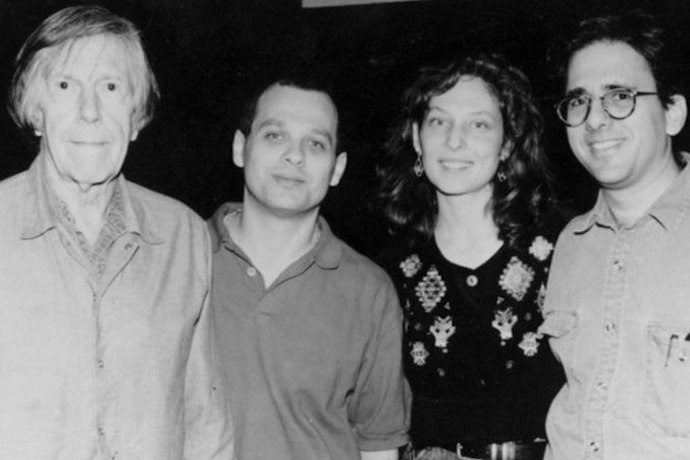
By Amanda Adams
Who is Julia Wolfe?
Julia Wolfe is an award-winning American composer and professor of music at New York University. Wolfe’s works meld the classical, rock, and folk genres and address social and political subjects, such as climate change and the rights of women and immigrants.
Where was she born?
Julia Wolfe was born on December 18, 1958 in Philadelphia, PA.
How did her musical journey begin?
Wolfe played piano and guitar as a child, but did not seriously pursue music until her years as an undergraduate student at the University of Michigan. Having planned to take courses in social sciences and pursue work as an activist, she shifted directions upon studying under a female professor, who inspired her to think that instead of “reading about people doing things”, she could build something with music.
Where did she study?
Julia Wolfe obtained her Bachelor of Arts in Music and Theatre from the University of Michigan in 1982. Later, with the encouragement of fellow composers Michael Gordon and David Lang, Wolfe applied to the Yale School of Music, where she obtained her Master’s Degree in Music in 1986. Wolfe was awarded a Fulbright Scholarship in 1992 to continue her work in Amsterdam and received her PhD from Princeton University in 2012.
What types of musical projects has she worked on?
Julia Wolfe has written a wide collection of works for string instruments, from quartets to full orchestra pieces. Her quartet pieces “combine the violent forward drive of rock music with an aura of minimalist serenity [using] the four instruments as a big guitar, whipping psychedelic states of mind into frenzied and ecstatic climaxes” (The New Yorker Magazine). Wolfe has written for a wide variety of performance groups, including oratorios, women’s choruses, flute choruses, chamber choirs, and more.
Wolfe and her fellow composers Michael Gordon and David Lang founded an organization called “Band on a Can” in 1987. The music collective works to commission new work, record, and present innovative music, and educate musicians. In 2001, Wolfe, Gordon, Lang, and Kenny Savelson, the Executive Director of “Bang on a Can”, founded a Brooklyn-based record label, called “Cantaloupe Music”.
Wolfe has also collaborated with filmmakers and theater artists, including Bill Morrison and Anna Deavere Smith. Wolfe’s music has been performed internationally, including at Carnegie Hall, the Brooklyn Academy of Music, Lincoln Center, Muziekgebouw (Netherlands), Southbank and Barbican Centres (UK), Settembre Musica (Italy), and Theatre de la Ville (France.)
What does her music sound like?
Julia Wolfe’s music blends the genres of rock, classical, and folk all while “inhabit[ing] a terrain of its own” (The Wall Street Journal). Wolfe’s music is powerful and emotional, and challenges both the performer and the listener. Her pieces have been defined as repetitive, minimalist, and relentless, qualities that help to deliver her social and political messages.
What kind of awards and recognition has she received?
Julia Wolfe was awarded a Pulitzer Prize for her piece Anthracite Fields in 2015. In the same year, she received The Herb Alpert Award in the Arts, an award for risk-taking artists in their mid-careers. She was named a MacArthur Fellow in 2016 and was awarded an honorary degree from Drew University in 2018.
Where does she teach?
Julia Wolfe is a Professor of Music Composition and the Artistic Director of Music Composition at New York University. Prior to teaching at NYU, Wolfe taught as an adjunct professor at the Manhattan School of Music.
What should I listen to by Julia Wolfe?
Julia Wolfe’s Pulitzer Prize winning work, entitled Anthracite Fields, consists of five movements and pulls inspiration from oral and written history, paying tribute to the people of the coal-mining region of Pennsylvania. The full audio of the piece can be heard on Wolfe’s website using the link above.
Fire in my mouth, a piece written for a female choir and orchestra, pays homage to the struggles of immigrant women working in the garment industry. The full audio of the piece can be heard on Wolfe’s website using the link above.
unEarth, a recent 2023 work for orchestra, children’s choirs, and men’s choirs, addresses the climate crisis and employs spatial and scenic design elements. An excerpt of a rehearsal can be viewed using the link above.